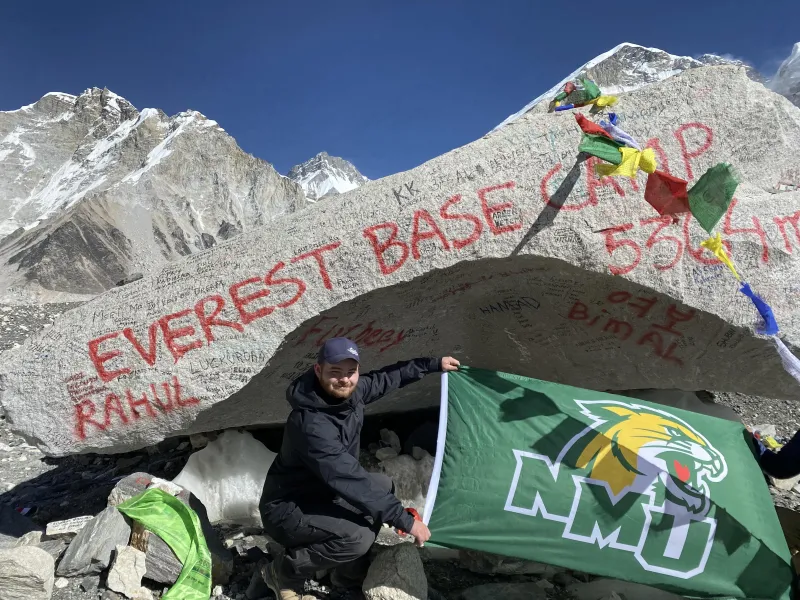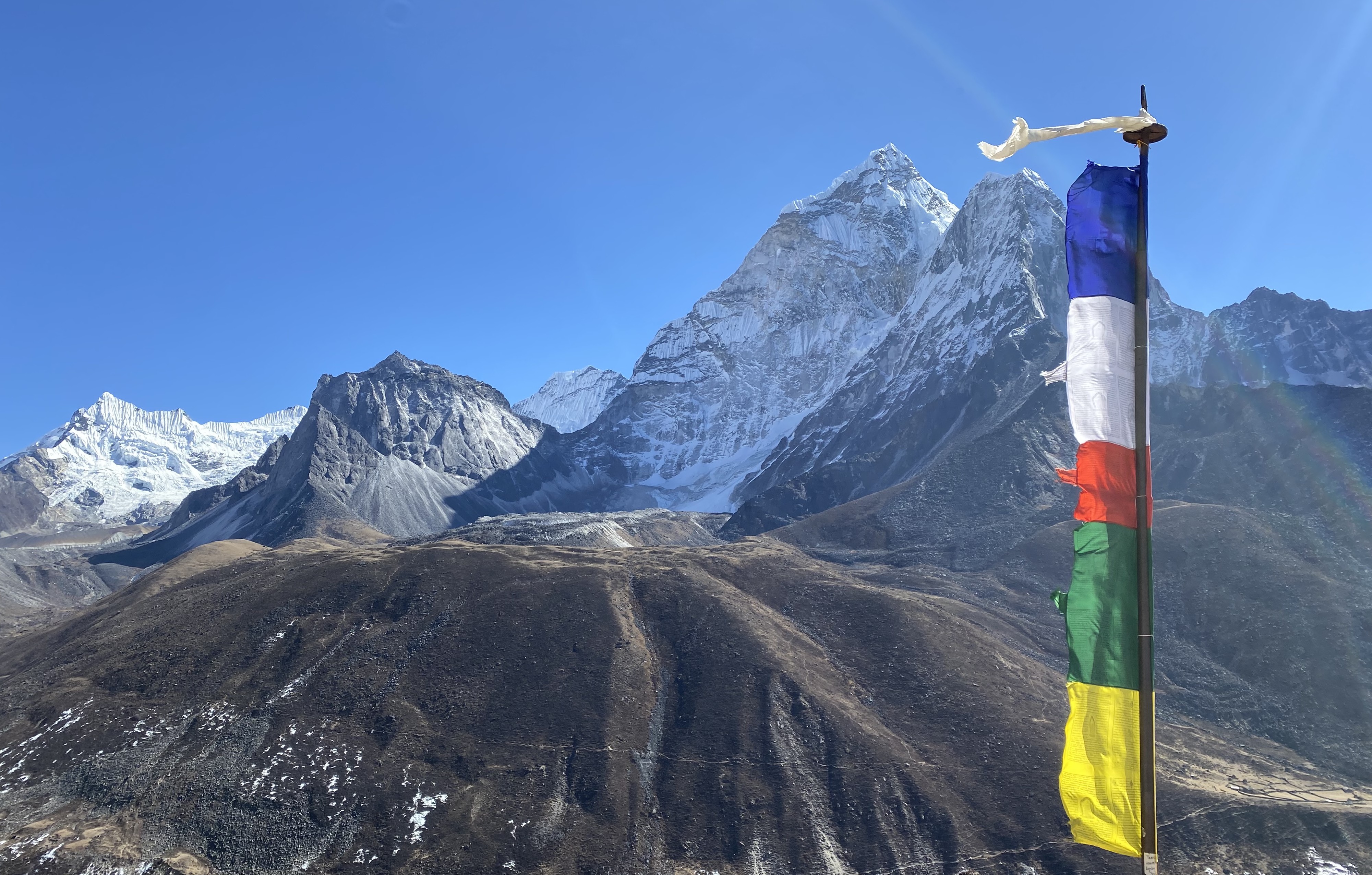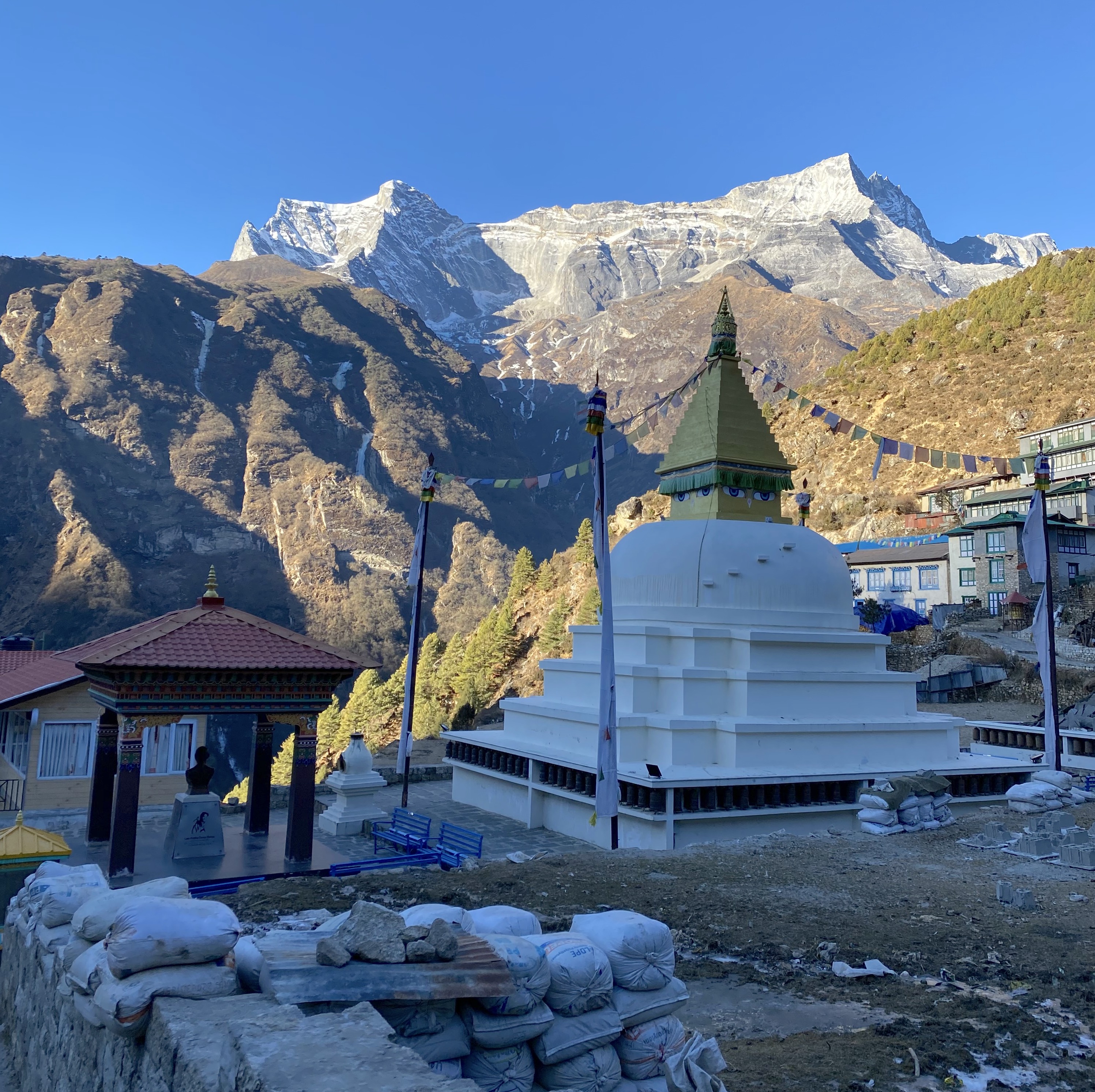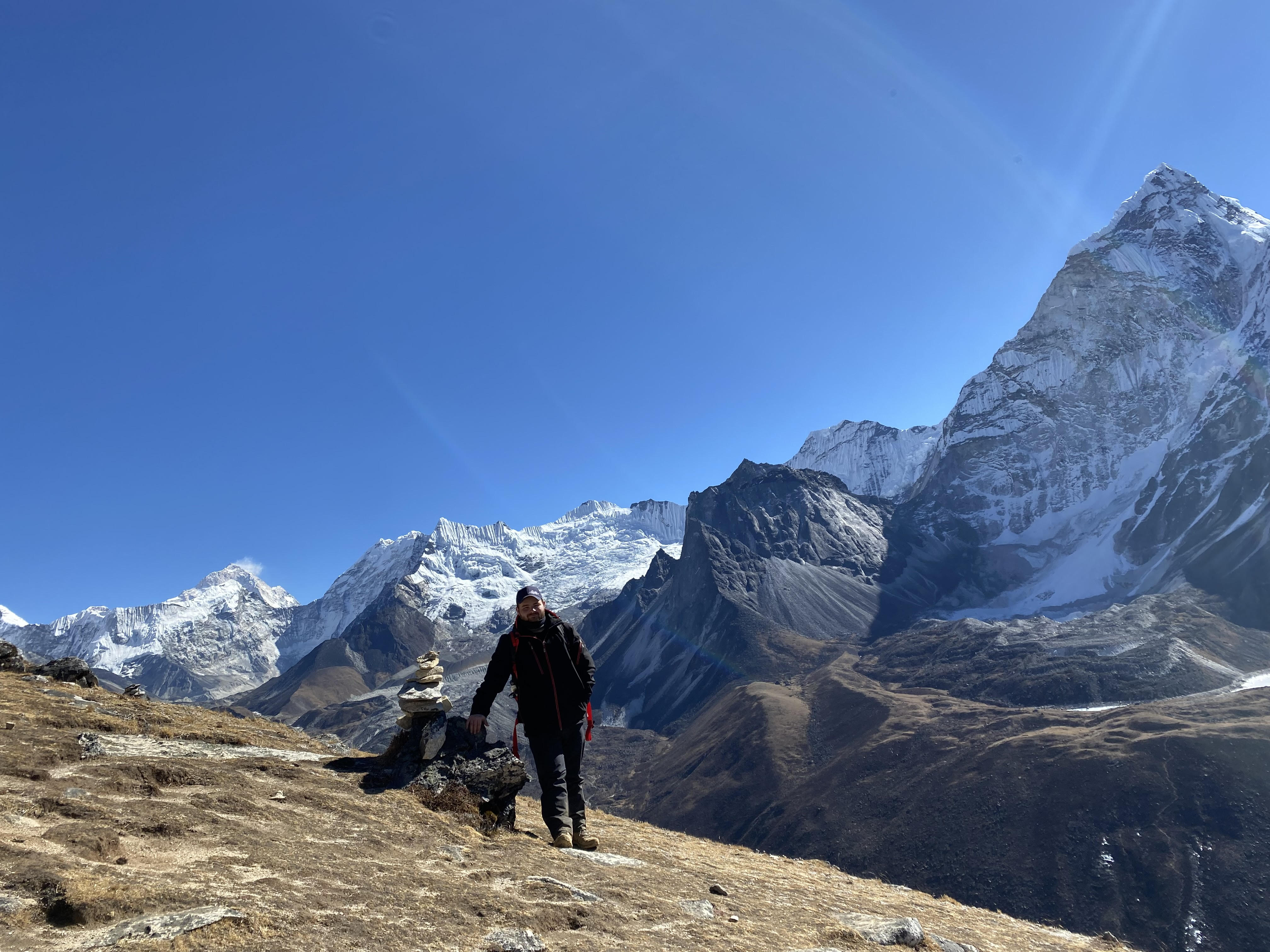Northern Michigan University senior Anthony Gonzalez offered his professors a rare excuse for missing the first two weeks of the semester. He was in Nepal, successfully completing the iconic trek to Mount Everest Base Camp. By traveling during the off season—his only option before graduating in May and starting his career—Gonzalez encountered very little traffic on the route and was treated to “blue skies and crystal-clear views every day.” But consistent sub-zero overnight temperatures and the high altitude took a physical toll that required extra recovery time upon his return.
“I have no regrets; it was very strenuous, but it felt great to achieve my goal,” said the criminal justice major from Mukwonago, Wis. “When I made it to base camp, my guide gave me a medal for completing it, along with a government certificate with my name on it. It was so windy that I almost lost my NMU flag when I took it out for a photo. The next morning, I didn't want to get out of bed after pushing so hard, but we woke up at 3:30 a.m. and went a little farther up, to just under 19,000 feet in elevation, where there was a really impressive viewpoint.”
Gonzalez was able to take in the sunrise, which illuminates Everest first and casts a fiery red glow on its peak, and nearby Lhotse Mountain. He also saw Khumbu Icefall, considered the most treacherous stage because it shifts three to four feet down the mountain each day, opening crevasses and causing massive ice towers to fall. The obstacle is responsible for most climber deaths.
The criminal justice major departed for Kathmandu, the capital of Nepal, in early January. He took another flight to the tiny Himalayan settlement of Lukla, the most common starting point for hikers heading to Everest Base Camp. Gonzalez was accompanied by his sherpa guide, Pram, along with a porter who transported nonessentials in a duffel bag on his back. They hiked about seven hours per day.
The trio spent about two weeks traversing through a series of villages and spending each night in a different tea house that offered basic lodging and meals. Gonzalez said there was typically a large, open area for eating with a wood-burning stove in the middle—the only source of heat for the entire place. No more wood was added after dinner, so the overnight indoor temperature dipped to zero or lower, as frigid winds rattled the structure's exterior.
Gonzalez admits he underestimated how problematic the cold would be, and urges others considering the trek to plan it for the peak spring season. He said he had checked the forecast before leaving and it was comparable to Marquette.
“It was actually in the 60s in Kathmandu, but the temperature kept dropping and base camp was -15 degrees. There was just no opportunity to warm up, and trying to lie still and sleep in those conditions is much worse than moving around in them outside. I was sleep-deprived for four or five nights at the peak of my trip. Even my guide didn't sleep well. I could never breathe through my nose, and I developed a bad cold with a terrible cough. I didn't even want to get up to go the bathroom.”
One night, Gonzalez said he woke up to find that his lips were frozen together. He panicked, sneezed and they ripped open to the point they bled. His lips were “insanely chapped” the rest of the way. When he reached higher elevations, he started to lose his appetite.
“I didn't want to eat much of anything; I was probably consuming only 300 calories over three meals. Pram made sure I ate three times a day, but the altitude definitely affected me, even though I took steps to acclimatize early on. I also had a prescription to help with that, but once we got to about 15,000 feet, I had a constant headache.
“When wi-fi was available, I'd contact my parents and tell them it was going well so I wouldn't worry them more. If it would have gotten too bad, there are helicopters that transport people out. I saw that happen daily, but I'm glad I didn't require that. I learned that I could push myself physically a lot further than I thought. One guy I ran into said it's incredible we can do this without being in prime shape. But I can't imagine how strenuous it would be to go all the way up to the Everest summit. People plan years for that; I was only preparing for a few months.”
During that relatively brief preparation window, Gonzalez did extensive hiking in the Marquette area to improve his conditioning. He also adopted a healthier diet, eliminating soda and fast food, and lost 20 pounds.
By the time his return flight landed Jan. 26 at O'Hare in Chicago, he was ready to be back. The only detour Gonzalez took on the way from the airport to his parents' home was to a Culver's, where he could satisfy an intense craving for his favorite fast food. Gonzalez recuperated in Waukesha from a bad case of jet lag and saw a doctor there because of Covid-like symptoms, but tested negative. He returned to NMU Jan. 31.
“I really appreciate how cooperative my professors were,” Gonzalez said. “I've done a ton of solo international travel and I love researching places online and thinking of the possibilities. I was determined to do something fun, adventurous and memorable before I settle down and start my career, but it turned out more dangerous than I expected. I'm just grateful I made it to Base Camp and returned safely.”
Gonzalez said he hopes to secure a job in federal law enforcement. He has interviewed with the U.S. Marshall Service in Milwaukee and the Drug Enforcement Administration in Chicago, and is eligible to apply to any of their locations two months before he graduates.




